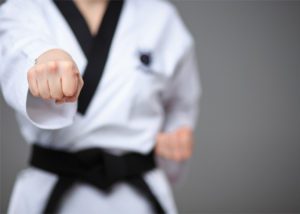By Valeriy Sabodash, M.D.


Data analysis from the Rush Memory and Aging Project in the Lancet Neurology in 2019 reported on a potential connection between general health and clinical presentation of Alzheimer’s disease. It was proposed that people with a low amount of frailty were better able to tolerate Alzheimer’s disease pathology and those with higher frailty index were more likely to have more Alzheimer’s disease pathology to be expressed as dementia and faster cognitive decline. Frailty index for that study was calculated as the number of health deficits, in other words, physical and medical comorbidities related to aging.
The Frailty syndrome is age-related physical debility with an estimated prevalence rate of 7-16% in community-dwelling older adults. Dr. Linda Fried and Johns Hopkins University proposed clinical criteria for the Frailty syndrome including deficits such as unintentional weight loss, exhaustion, muscle weakness, slowness while walking, and low levels of activity.
Advances about potentially modifiable risk factors for frailty offer the basis for translational research effort aimed at the prevention and treatment of frailty in older adults.
We are all aware that exercise generally has many benefits, such as improving physical fitness and strength. However, what do we know about the effects of specific types of exercise? Researchers have shown that jogging can increase life expectancy, while yoga makes us happy. What about martial arts?
In the research from Germany “Comparing the effectiveness of Karate and fitness training on cognitive functioning in older adults” published in 2016 in the Journal of Sport and Health Science, eighty-nine older women and men were randomly assigned to one of three groups. One group practiced Karate twice a week. Another group did traditional fitness activities like running and working out twice a week. The control group continued their normal activities.
After five months, only the Karate group showed improvement in attentiveness, motor reactivity, and stress tolerance. Authors also noted a reduction of falling risk in this group. It was not clear why Karate was better than the other types of exercise, but the authors speculated that its specific blend of aerobics, balance, and coordination might have a particularly beneficial effect on the brain.
Recent studies in the field of martial arts discovered great benefits to physical and mental health.
Strength and balance. An article published in 2014 in Societies looked at four studies of participants in Tae Kwon Do and Karate. Results indicated improvement in balance, the ability to stand longer on one leg, and in reaction time. Another study published in the British Journal of Sports Medicine compared the fitness levels of adults regularly practicing Soo Bahk Do or were sedentary. Those in the martial arts group who exercised at least twice a week had greater strength, balance, flexibility, aerobic capacity, and less body fat. They could perform more sit-ups and pushups.
Fall reduction. In the 2016 study “Effects of home‐based Tai Chi and lower extremity training and self‐practice on falls and functional outcomes in older fallers” published in the Journal of the American Geriatric Society, older adults with recent injuries from falls were randomized to either Tai Chi classes or leg strengthening exercises for six months. Those in the Tai Chi group were significantly less likely to fall, and considerably less likely to be injured if they did fall, compared with those in the leg strengthening group.
Greater stress management and enhanced emotional well-being. Tai Chi places great emphasis on controlled breathing and meditation. Practicing these techniques is strongly linked with the reduced feeling and better managing stress across all ages.
In the 2016 study “Effects of Karate training versus mindfulness training on emotional well-being and cognitive performance in later life” the Karate group improved in cognitive processing speed, subjective mental health and had reduced anxiety. Another study from the United Kingdom published in 2018 demonstrated that martial arts could improve attention span and alertness. The Karate training group also showed a lower level of depression after the training, perhaps due to its meditative aspect, and a higher degree of self-esteem.
Reduced aggression. In a US study, children aged from eight to eleven were tasked with traditional martial arts training focused on respecting other people and defending themselves. The researchers found that martial arts training reduced aggressive behavior in boys, and found that they were more likely to step in and help someone who was being bullied.
Improved memory. Italian researchers in 2014 found that participating in Karate can improve a person’s working memory, selective attention, and executive function. The Karate group was much better compared to a sedentary group at recalling and repeating a series of numbers in the correct order and backward increasing in difficulty until the participant was unable to continue.
There are many styles of martial arts, some more gentle and meditative, others combative and physically intense. However, this only means that there is a type for everyone to boost their brain and optimize body health using these ancient practices.
Negroski Neurology MS Center of Sarasota
(941) 487-2160
5741 Bee Ridge Road, Suite 530
Sarasota, FL 34233
Located in the Sarasota Medical Centre next to Doctors Hospital of Sarasota (Corner of Bee Ridge Road and Cattlemen off of Maxfield Drive)
 Southwest Florida's Health and Wellness Magazine Health and Wellness Articles
Southwest Florida's Health and Wellness Magazine Health and Wellness Articles

